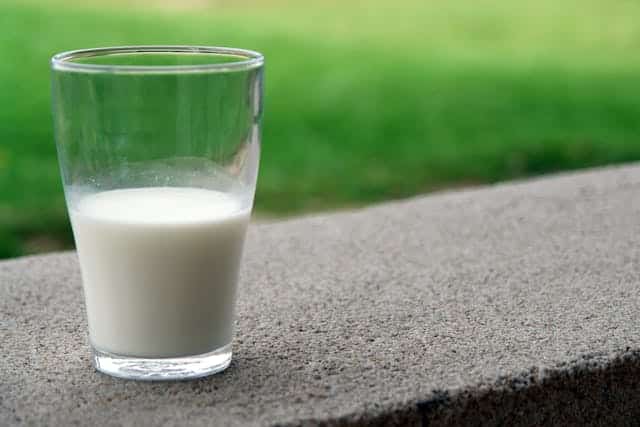What Are the Best and Worst Foods and Drinks for Your Oral Health?
Maintaining good oral health goes beyond brushing and flossing; it also involves making mindful choices about what you eat and drink.
Your diet can significantly impact the health of your teeth and gums.
Some foods and drinks are better than others when it comes to oral health.
Additionally, there is a strong connection between oral health and overall health, and choosing the right foods and drinks will help prevent overall health problems while improving your oral health.
Let’s explore the best and worst foods and drinks for oral health, helping you make informed choices to preserve your smile.
The Best Foods and Drinks for Oral Health
A healthy smile starts with more than brushing and flossing—it also depends on what you eat and drink.
Certain foods and beverages can strengthen your teeth, support gum health, and help prevent cavities, while others may contribute to decay and enamel erosion.
Choosing nutrient-dense, tooth-friendly options can make a big difference in maintaining long-term oral health.
Best Drinks for Oral Health

The beverages you choose can have a significant impact on your oral health. Some drinks help strengthen teeth, wash away harmful bacteria, and support saliva production, while others contribute to enamel erosion and cavities.
Prioritizing tooth-friendly drinks can keep your smile strong and healthy.
Water
Water is the best drink for oral health, serving multiple functions that contribute to a healthy mouth.
Primarily, water helps to cleanse the oral cavity by washing away food particles, bacteria, and lingering acids that contribute to tooth decay and gum disease (ADA, 2019).
Additionally, water keeps the mouth well-hydrated, facilitating the production of saliva, which contains enzymes and proteins that aid in digestion and act as a natural defense against oral bacteria (Dawes, 2008).
Mineral water can offer an additional layer of benefits due to its mineral content, particularly calcium.
Calcium is essential for developing and maintaining healthy teeth and bones.
Some types of mineral water are rich in calcium, and research suggests that the calcium in mineral water is bioavailable, meaning that it can be effectively absorbed by the body (Greupner et al., 2017).
This bioavailability is generally similar to that of calcium found in food sources like dairy products, making mineral water a potentially beneficial option for those who are lactose intolerant or looking for alternative sources of calcium.
Consuming water, especially mineral water with a high calcium content, supports a multifaceted approach to oral health, from basic hygiene to mineralization.
Green Tea
Green tea is a beverage rich in polyphenols, natural compounds that have been shown to reduce bacteria and combat inflammation in the oral cavity. These properties may contribute to a lower risk of developing gum disease (Narotzki et al., 2012).
While green tea offers these advantages, consuming it in moderation is important as excessive consumption can stain teeth due to its tannin content.
Dairy Drinks (Milk & Kefir)
Milk and kefir are excellent sources of calcium and phosphates, both of which strengthen tooth enamel and help maintain the integrity of your teeth.
These beverages also contain casein, a protein that helps protect enamel by reducing acid erosion (Aoba & Fejerskov, 2002).
Kefir, a fermented dairy drink, has additional benefits due to its probiotics, which support a healthy oral microbiome and may help prevent gum disease by reducing harmful bacteria in the mouth.
Best Foods for Oral Health

The foods you eat play a crucial role in maintaining strong teeth and healthy gums. Nutrient-rich options can help remineralize enamel, stimulate saliva production, and keep your teeth healthy.
Incorporating the best foods for oral health into a balanced diet can protect your smile and reduce the risk of cavities and gum disease.
Dairy Foods (Cheese & Yogurt)
Cheese and yogurt are among the best foods for oral health because they provide essential nutrients such as calcium, phosphorus, and probiotics.
These components play a pivotal role in oral health by strengthening tooth enamel—the hard outer layer of teeth that serves as a shield against decay (Llena-Puy, 2006).
Cheese, particularly aged varieties, can help neutralize acids in the mouth and stimulate saliva production, which protects against cavities.
Additionally, it contains casein, a protein that strengthens enamel and helps prevent decay (Reynolds, 1997).
Yogurt, especially plain or Greek yogurt, is rich in probiotics, which can benefit gum health by reducing harmful bacteria in the mouth.
Opting for unsweetened varieties ensures you reap the benefits without exposing your teeth to added sugars.
Leafy Greens
Leafy greens like spinach and kale are powerhouses of nutrition, boasting high levels of essential vitamins and minerals such as calcium, phosphorus, and Vitamin K, while being naturally low in sugars and acids.
These nutritional attributes make them ideal for oral health.
The calcium in leafy greens, similar to dairy products, aids in strengthening tooth enamel.
Additionally, vitamin K plays a role in bone metabolism and can help maintain the integrity of the gums and the oral bone structure.
These greens can also provide a gentle abrasive action that helps to clean teeth naturally during consumption.
Their low sugar and acid content make leafy greens particularly favorable in comparison to more sugary or acidic foods that can be detrimental to oral health.
Incorporating leafy greens into your diet can be an easy and effective way to promote oral health and overall well-being.
Lean Proteins
Lean proteins like chicken, turkey, and lean cuts of beef or pork are excellent sources of essential nutrients, notably phosphorus.
Phosphorus is crucial for the development and maintenance of teeth, as it works synergistically with calcium to strengthen tooth enamel (Bowen, 2013).
Aside from phosphorus, lean proteins also provide other nutrients like Vitamin B and iron, which contribute to the overall health of gums and teeth.
The absence of saturated fats in lean cuts makes these proteins a balanced choice for maintaining oral health as part of a broader nutritional plan.
Crunchy Fruits and Vegetables
Crunchy fruits and vegetables like apples, carrots, and celery act as natural toothbrushes.
The mechanical action of biting and chewing these foods stimulates saliva production, a critical factor in neutralizing acids and washing away food particles.
Furthermore, the fibrous texture of these fruits and vegetables can give your gums a minor “workout,” encouraging blood flow to the area and supporting overall gum health.
Nuts and seeds, such as almonds and chia seeds, are packed with nutrients that benefit oral health, including calcium, phosphorus, and healthy fats.
The Worst Foods and Drinks for Your Oral Health

Some foods and drinks can negatively impact your oral health by contributing to tooth decay, enamel erosion, and gum disease.
Sugary, acidic, and sticky options create the perfect environment for harmful bacteria to thrive. Being mindful of these choices and limiting their consumption can help protect your teeth and gums.
Sugary Snacks
Candy, cookies, and sugary snacks promote the growth of harmful bacteria that lead to tooth decay and cavities.
Sugary Beverages
Soda, sports drinks, and fruit juices contain sugar and acids that erode tooth enamel. Opt for water or unsweetened beverages instead.
Acidic Foods
Citrus fruits, tomatoes, and vinegar can be acidic and wear down tooth enamel over time. Consume them in moderation and rinse your mouth with water afterwards.
Sticky Foods
Sticky candies, dried fruits, and gummy snacks cling to teeth, making it harder for saliva to wash away the sugar and acids. Brush and floss after consuming these foods.
Hard Candies
Hard candies pose a risk of chipping or cracking teeth when bitten. Additionally, they release sugar into the mouth as they dissolve.
Alcohol
Excessive alcohol consumption can dry out your mouth, reducing saliva production and increasing the risk of tooth decay and gum disease.
Coffee and Tea (with Sugar)
Coffee and tea can stain teeth, and when loaded with sugar, they become a double threat to oral health. Use less sugar or switch to sugar-free options.
Final Thoughts: Importance of Choosing the Best Drinks and Foods for Oral Health
Maintaining good oral health involves making wise choices about what you eat and drink.
While some foods and beverages can promote healthy teeth and gums, others can contribute to oral health issues like cavities, gum disease, and tooth decay.
To complement your efforts in preserving your oral health, explore dental bonding cements for various dental applications.
These cements play a pivotal role in ensuring the longevity and effectiveness of dental restorations.
By incorporating more tooth-friendly choices into your diet and limiting the consumption of sugary and acidic items, you can protect your smile and ensure a lifetime of good oral health.



